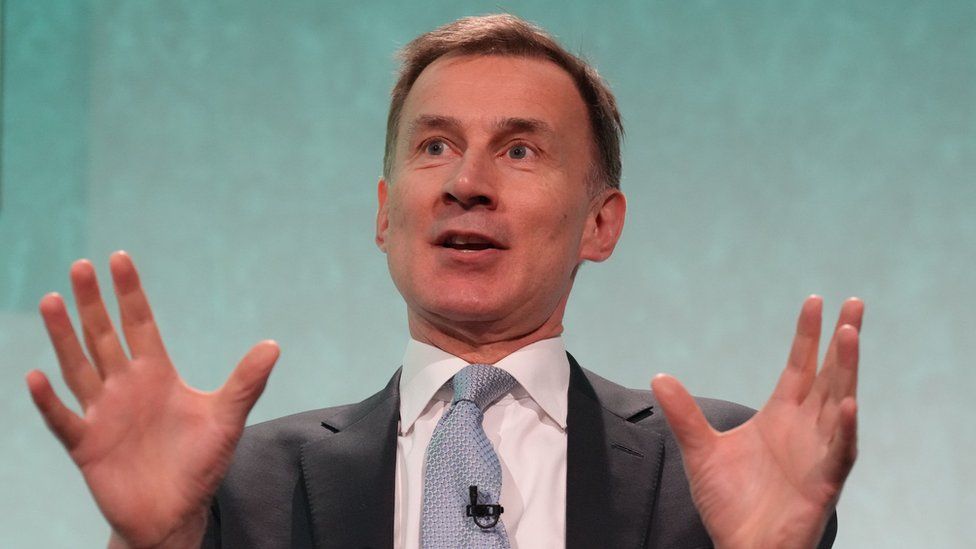ARTICLE AD BOX
 Image source, PA Media
Image source, PA Media
By Anthony Reuben
BBC Verify
Chancellor Jeremy Hunt said the cut to National Insurance would be worth: "nearly £1,000 for a typical two-earner family".
He was speaking to Today on BBC Radio 4 about the change that saw National Insurance (NI) come down by 2p in the pound, from 6 January.
But the level of income at which people start paying NI and income tax has been frozen since April 2021.
Once you take this into account, the benefit from the NI cut is considerably lower.
Where does the £1000 come from?
We asked the Treasury how the chancellor worked out this figure and were told it was based on the saving for a family with two people on the average wage for a full-time employee.
The average wage for a full-time employee is about £35,400.
- The point at which you start paying NI is £12,570
- That means our employee on £35,400 pays NI on £22,830 of it
- Instead of paying NI at 12%, they are now paying it at 10% - that works out at £2283 instead of £2739.60, a difference of £456.60 a year
- If you have two people earning that much in a household then it's £913.20.
What about other tax measures?
The "nearly £1,000" figure excludes the impact of other tax measures.
In particular, the level of income at which people start paying income tax and NI has been frozen in the UK since April 2021.
This means more people pay taxes and more people pay higher rates of tax than would have happened if these tax thresholds had gone up in line with rising prices.
Independent economic think-tank the Institute for Fiscal Studies estimates that if you factor the freeze in for April 2024, then the average earner would be saving £130 a year instead of £450 from the NI cut.
And if you take into account all the freezes the government has implemented since 2021, then that worker would be just about getting back as much as they're losing this year.
The Office for Budget Responsibility, which makes economic forecasts for the government, expects the personal tax measures implemented in 2021 and 2022 to raise an extra £44.6bn in 2028-29, while the 2p cut in NI will give back £10bn of that.
Is that a typical family?
Mr Hunt talked about a "typical two-earner family". We do not know how many households have two members earning £35,400, but £70,800 between them may not be typical.
For example, around 30% of working adults are part-time workers, according to the 2021 Census, who have an average annual income of about £12,500 before tax.
The average income for a household was £35,000 in 2022 before taxes and benefits are taken into account, according to the Office for National Statistics.
The £1,000 was also used by the Treasury press release titled: £1,000 yearly tax cut for households from today.

 1 year ago
23
1 year ago
23








 English (US) ·
English (US) ·